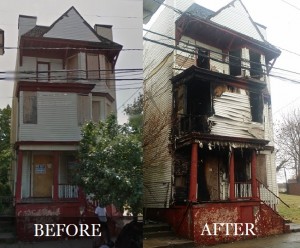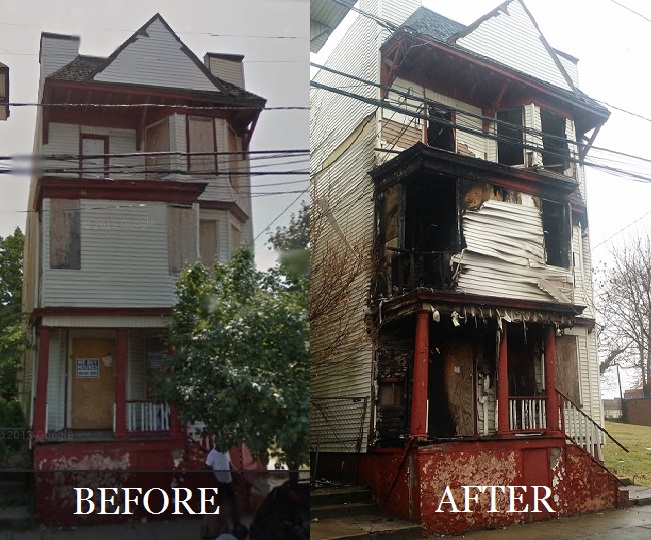I enjoy sharing before-and-after pictures of the amazing transformations we achieve with the rundown homes we buy. However, the images below reflect a different side—one I’d prefer not to post. These represent the worst-case scenario when a vacant property is left unattended, and the owner doesn’t act quickly to sell. Unfortunately, I feel compelled to share them as a cautionary tale for other vacant property owners. Delaying action can lead to serious consequences, and this is a reminder of what can happen when the property is left neglected for too long.

At one point, we had this house in Newark, NJ, under contract. We met with the owner and his wife, agreed on a fair price, collected the necessary paperwork, and moved forward with processing the sale. Unfortunately, shortly after, the owner changed his mind, stopped responding to our calls, and left the property vacant for the next two years. To make matters worse, the house was located in one of the toughest neighborhoods in Newark (we buy in all types of neighborhoods, from the best to the worst). The result was far from ideal, highlighting the risks of delaying action on a vacant property.
We eventually purchased the vacant house across the street, but during a recent visit, we noticed that the original property had been broken into and set on fire. Sadly, this isn’t uncommon in the area, where vacant homes are sometimes targeted by drug addicts looking for a place to use. The fire caused significant damage to the property, a direct result of it being left unattended for so long.
This situation has now created a serious dilemma for the property owner, especially if they don’t have vacant property insurance—a common issue for many vacant property owners. Here are several potential problems that vacant property owners need to be aware of:
1) Loss in Value: The property’s value has dropped significantly since we, or any other investor, were originally interested. Although I haven’t been inside since the fire, based on what we’ve seen from the outside and past experiences, the owner likely lost around $30,000 in value. This is money he could have received had he sold the property earlier, before the fire. Now, selling it will likely result in a much lower price due to the extensive damage.
2) Increased Liability: The house was located just a few feet from an occupied neighboring property, which significantly raises the owner’s liability. Any damage caused to the neighboring house makes the owner financially and legally responsible. Since this house was a rental while the owner lived elsewhere in a nicer neighborhood, any lawsuit resulting from fire damage, personal injury, or even death could lead to a massive judgment or lien. This could affect not only the rental property but also the owner’s personal home and finances, putting everything at risk.
3) Judgment Against the Owner: Property owners who abandon a property in foreclosure, thinking they’re free from responsibility, should tread carefully. They already risk facing a deficiency judgment if the house sells for less than what they owe at auction. Now, with the property being fire-damaged and worth much less, they could be hit with an even larger deficiency judgment. This could lead to serious financial consequences, including wage garnishment or a levy against their bank accounts, making a bad situation even worse.
4) Pressure From City Hall: Even before the fire, the owner became a target for illegal dumping. Unscrupulous contractors often take advantage of vacant properties, using them as illegal dumping grounds. Unfortunately, the city holds the property owner responsible for the cleanup. This can result in municipal liens against the owner and potential court appearances to answer for the neglected property. These added legal and financial pressures can quickly escalate if not addressed.
The best advice we can offer to owners of vacant houses is to secure and insure the property as soon as possible. Also, stay in touch with the neighbors and ask them to notify you if they spot any suspicious activity. If the house isn’t generating income and is instead costing you in property taxes and insurance, it may be time to consider selling to a professional real estate investor. Experienced investors know how to handle vacant properties and can provide a hassle-free sale, allowing you to move on without the ongoing expenses and risks.

